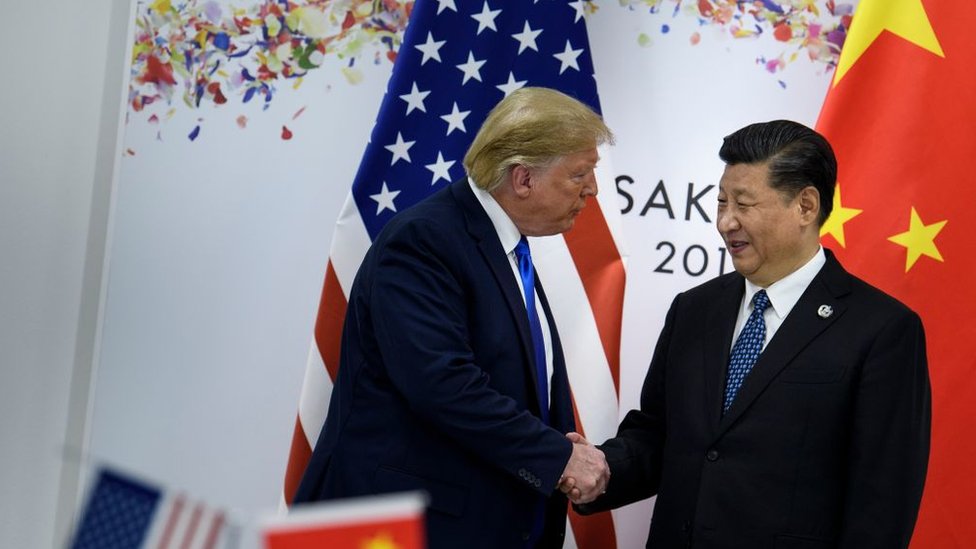
PEJOURNAL – China-U.S. relations have been severely weakened in 2020 three years after a gradual decline in Donald Trump’s administration. Beijing and Washington have accused each other of the coronavirus pandemic, entered an insane economic war, competed over Fuji networks and other technologies, and disputed human rights abuses in Hong Kong and Xinjiang (alongside other issues)
President-elect Joe Biden must face these challenges from day one of his presidency, the Council on American Foreign Relations website wrote in a note. Experts from the Council on Foreign Relations (CFR) have reviewed major events affecting China-U.S. relations over the past year and analyzed possible actions by the Biden administration.
Trump’s Chinese Gift
The Trump administration’s policy toward China remains in place. In the weeks following the U.S. presidential election, officials have done much in Tibet, Taiwan, financial separation and the South China Sea, and added to their plans for the past four years. Although these measures will apparently make it difficult for the Biden administration, it will instead give the Biden group more leverage.
The Biden administration will have plenty of options on how much to keep the Trump group’s actions. Some of these decisions, including the cancellation or continuation of tariffs on Chinese goods worth $370 billion, will be challenging. These tariffs have damaged the U.S. economy, but at the same time have provided the U.S. with economic leverage. Other measures, such as reviving the quadrilateral security dialogue with Australia, India and Japan, strengthening US-Taiwan ties and sanctioning individuals and companies accused of human rights abuses in Xinjiang, are likely to persist.
The Biden administration could make rapid gains by repairing some of the gaps left by the Trump administration. A return to international agreements and institutions, partnerships with European allies, strengthening the U.S. and rebuilding the China-U.S. diplomatic framework are likely to be on Biden’s agenda.
COVID-19 reduction
In the United States, the coronavirus pandemic is linked to domestic politics and is linked to China. To divert domestic attention from the growing COVID-19 cases and the protests that resulted from the murder of George Floyd, Trump blamed China for the outbreak and called the World Health Organization a tool of Beijing’s hand. Some U.S. politicians demanded economic separation from China with the impression that China was to blame for the coronavirus pandemic and disruption of the global supply chain. Conspiracy theories about the origin of the coronavirus outbreak, which also fueled misinformation and misinformation on both sides, have exacerbated mistrust between the two countries and dramatically increased the American public’s negative view of China.
In China, the government’s ability to quickly contain the spread of the virus, along with China-U.S. political tensions, has strengthened nationalism and an anti-American view. Trump’s deliberate use of the term “Chinese virus” intensified nationalism in China and ostracized American journalists. Washington’s failure to lead global health and Beijing’s advance has convinced even Chinese liberal elites that interdependence with the U.S. is a risk that needs to be reduced.
The lasting damage of Hong Kong’s crackdown
It seems that the blow to Hong Kong’s freedom in 2020, and consequently, on China’s relations with liberal Western democracies such as the United States, will be irreparable in the near future. Beijing’s actions against Hong Kong have severely damaged China-US relations. Undoubtedly, Beijing knew that Hong Kong’s sudden crackdown on small and weak democracy would be costly for China’s relations with Britain, the United States and many other powers. The Trump administration sanctioned officials in China and Hong Kong, ending Hong Kong’s special trade position.
China’s law body, the National People’s Congress and the Standing Committee issued new laws for Hong Kong, and the rules were quickly enforced by undercover police and officials appointed by china’s central government. This weakened Hong Kong’s Law Council, undermined the prospect of free elections, restricted the powers of independent courts, intimidated the media, intensified patriotism in public education and restricted real freedom and allowed totalitarian control.
Intensifying competition in Fuji
Technological competition between China and the U.S. has increased dramatically this year. Beijing is trying to resist pressure from Washington. In recent months, China has announced a new strategy to maintain economic growth and reduce dependence on foreign markets and technology. In particular, domestic industries have been taken into consideration and the government has spent billions of dollars in support of companies and research and development. Now the technological competition represents China-U.S. relations.
China’s ‘wolf fighter’ diplomacy’s devastating impact
Chinese leaders may be talking about the victory of peace, favorable behavior and a society of common destiny, but their belligerent and bullying actions have put China before the world. China’s pattern of behavior is now known as “wolf fighting” diplomacy. China’s approach goes back long before 2020, but has dominated China’s diplomatic engagement over the past year. China claims its verbal attacks are a defensive response to criticism from the U.S. and other countries, but this type of defense is too costly.